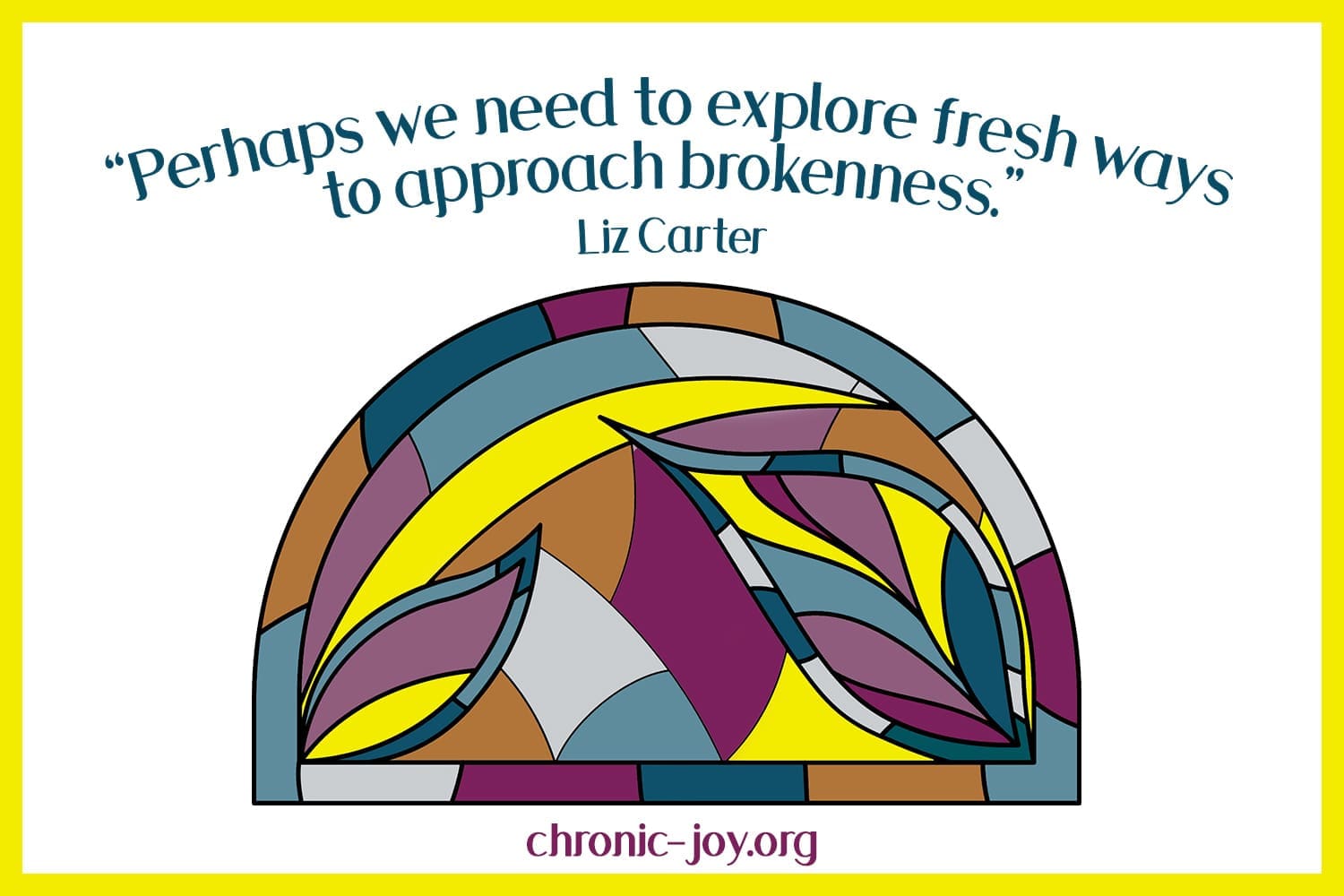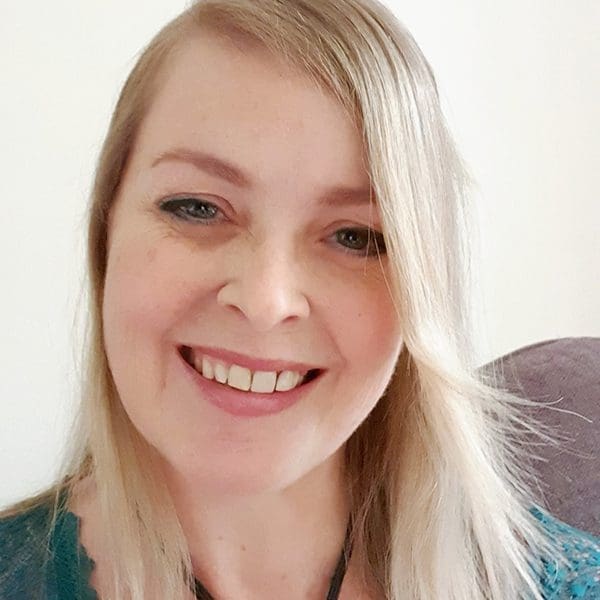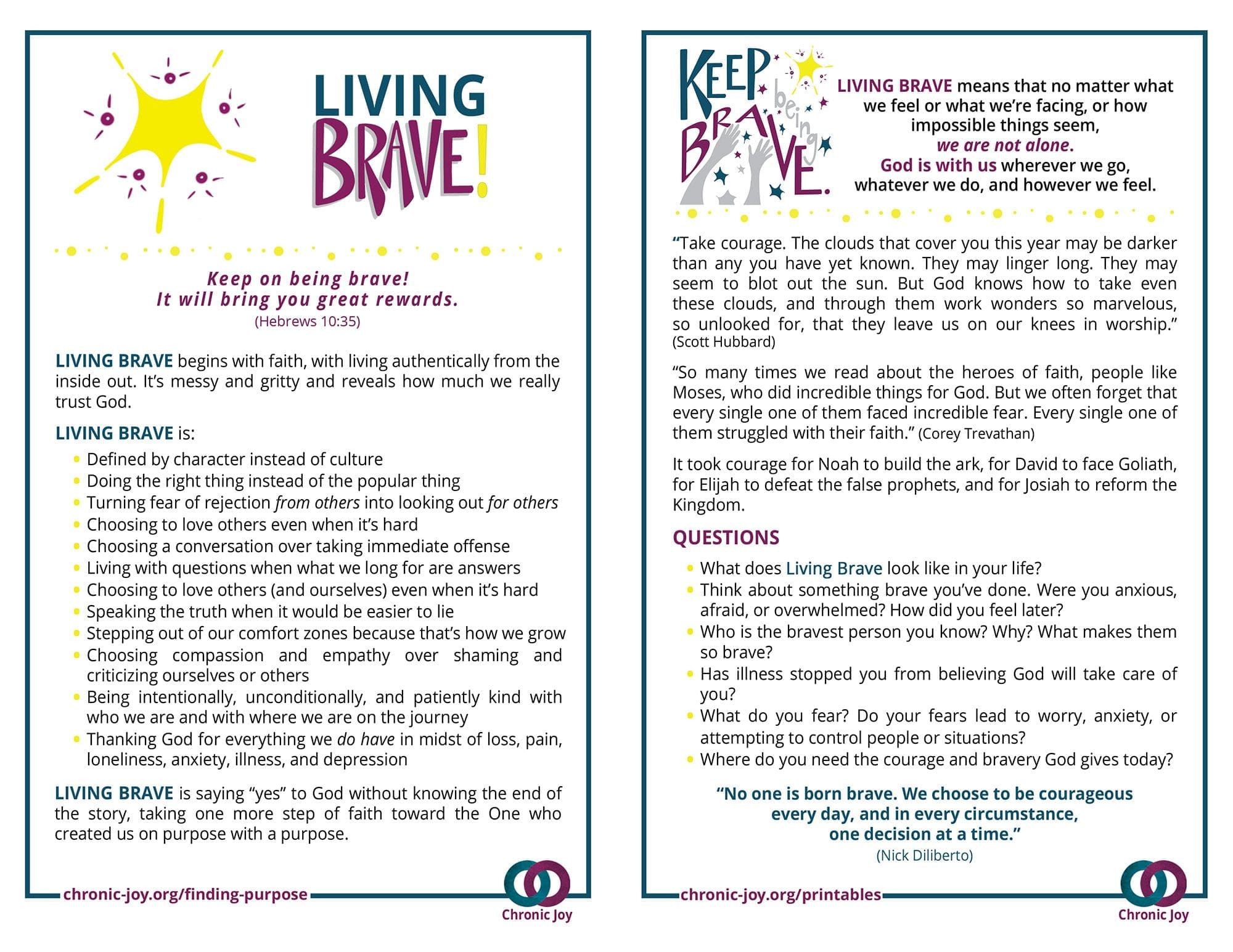
“Perhaps we need to explore fresh ways to approach brokenness.” Liz Carter
We know that suffering produces perseverance; perseverance, character; and character, hope. (Romans 5:3-4)
A NEW HOPE STORY
“We’re throwing you a book launch party,” my friends said.
My first book, Catching Contentment, was about to be published, something I had dreamed of for so long. The book had been written and because of long-term illness and pain, and I felt like I deserved this. My friends decorated the hall, and over a hundred friends and relatives from all over the country were set to come.
Then I caught double pneumonia.
Instead of reading from my new book and drinking champagne with my friends, I lay in a hospital bed, struggling to breathe. Instead of celebrating this achievement, I was tangled in IV lines and quivering with pain.
FEELING BITTER AND SAD
The party went ahead without me. People told me that it was even more poignant for my absence given the book’s subject, which explores what it means to find contentment when life hurts – but I just felt bitter and sad.
People were full of compassion and love, and their support was so helpful, but one or two statements made during that time sent me back into a murky old narrative, the gist of which was, “God is using you so much more because of your illness.”
The thing is, on one level and in the spirit of the words, I knew they were right. God was turning the situation to good and bringing others closer to him, my book’s words somehow taking on more profound power within the circumstances. However, in the hospital bed, the being-used language was not enough for me. This language failed me amid actual pain. It reduced my agony to a tool and my suffering to a means to an end. It turned my sadness and disappointment into self-indulgent emotions that should not matter because I was being useful.
I did find God in that hospital bed. I found Jesus sitting by my side, dwelling in despair with me. I found Him where His wounds still gape, in depths He plumbed for me and in nails He bore for me. I found Him in the consolation of the Spirit and the compassion of those around me.
I did not turn to Him and smile bravely, thanking Him for using me in my adversity.
A BETTER WEAKNESS LANGUAGE
What about you? Have you ever internalized a script of “use” rather than a poem full of love? Do you ever feel your suffering is justified because you are being used? Ultimately, this kind of thinking breaks down when faced with actual pain.
Think about Job and his well-meaning friends. They try to justify his pain in various ways, telling him that he must have sinned (Job 4:7-8) or his children must have sinned (8:4). They are increasingly desperate to find a reason for his suffering. In the end, though, none of these words help. God is angry with these friends, telling them they have given Job bad counsel (42:7). As the book closes, Job has not found any easy answers, but he has both held to and found hope in his Creator God – a God who draws him out to the fathomless borders of holy mystery rather than giving him justification for the use of his sorrow.
FINDING A NEW HOPE STORY
Perhaps we need to explore fresh ways to approach brokenness. Thinking of ourselves as “useful in adversity” can minimize suffering and even remove personhood. After all, we are more than our struggle. Instead, if we think of God at the center of the brokenness, joining in with our pain and working through it to build our hope, we can live a much more glorious story. How can we build this new story?
When Paul invites us to exult in our suffering (Romans 5:3), he urges us to apply a new perspective when life is hard – a perspective that doesn’t come easily but shatters the chains of “usefulness.” It’s an authentic, lament-tinged statement of faith, a holding to the hope we know is set before us – and a decision to practice gratitude for that hope, even when we cannot feel it.
AN OCEAN OF TEARS
God would keep no record if he only wanted to make tools out of our sadness. The suffering, once passed, would be forgotten, marked off against some kind of celestial tick list: “That one is done. That purpose is achieved. Next!” I am so grateful that our God does the very opposite.
You keep track of all my sorrows. You have collected all my tears in your bottle. You have recorded each one in your book. (Psalm 56:8)
We do not have a God who discounts or dismisses our struggles as necessary for the greater good. We do not have a God who allows our tears to fall unchecked, who tells us to pull our socks up because we are being useful. Instead, we have a God who guards great storehouses of our tears, each one known intimately, each one never forgotten, each one part of an ocean where love strokes the ripples and justice roars in the waves. Instead of using our pain, God bathes in the ocean of it with us.
FOR PRAYER & REFLECTION
Father, when I stumble under the weight of my struggles,
Set me free to find you there in them—
Not outside, using them,
Or using me.
When I cannot understand your silence,
Sit with me there
And hold me. Thank you that you work everything to the good,
That you are with me in the painful times,
That you speak to others through my difficulties.
Thank you that you collect up my tears
You write them in your book,
You roar in the waves with me.
Amen.
Excerpt from Valuable: Why Your Worth Is Not Defined by How Useful You Feel, published by The Good Book Company, June 2023.


LIZ CARTER
Liz is an author, poet, and editor from Shropshire. She writes out of her own chronically ill health about the difficult and painful times in life and how we can find gold in the mess. Her books, including Valuable, Catching Contentment, and Treasure in Dark Places, are available in bookstores. She is poet-in-residence for her town of Wellington, Shropshire, UK.

Living Brave
Living Brave begins with faith, with living authentically from the inside out. It’s messy and gritty, and reveals how much we really trust God.

Recent Comments